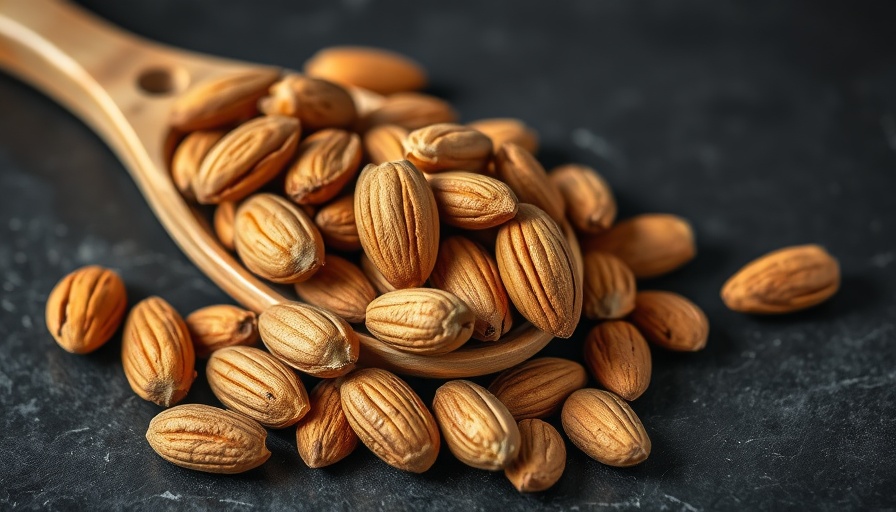
Understanding the Connection Between Smoking Cessation and Physical Activity
For men aged 35 to 55, quitting smoking can be a pivotal moment not just for health, but also for lifestyle. Many who quit face the challenge of weight gain, particularly around the waist, which has significant implications for long-term health. However, recent findings suggest that staying active plays a crucial role in mitigating these effects. Engaging in regular physical activity not only helps combat weight gain after quitting smoking but also promotes better overall health.
Why Waist Gain Happens After Quitting Smoking
It's not uncommon for smokers to experience weight gain after they quit. The reasons behind this phenomenon can be attributed to a range of factors:
- Metabolic Changes: Smoking accelerates metabolism. When an individual stops smoking, their metabolism may slow down, causing caloric intake to exceed expenditure.
- Increased Appetite: Nicotine suppresses appetite; without it, many former smokers may find themselves eating more than they used to.
- Emotional Eating: Quitting smoking can be stressful, leading to increased emotional eating behavior as individuals seek comfort foods.
The Role of Physical Activity in Weight Management
According to a study highlighted by several health authorities, incorporating physical activity during the smoking cessation process significantly reduces waist circumference. Men who actively engaged in exercise not only fared better in managing their weight but also reported improved mood and overall energy levels. This is especially vital for middle-aged professionals who may lead sedentary work lives and have increased responsibilities that contribute to stress.
Inspirational Stories: Overcoming Challenges
Consider the journey of John, a 45-year-old marketing manager who struggled with quitting smoking for years. After finally kicking the habit, John decided to take up running to manage the expected weight gain. His decision has not only kept him fit, but he also found fulfillment in a new community of fitness enthusiasts. "Running changed my perspective on health entirely. It’s more than just weight loss; it’s about redefining who I want to be," he shares.
Practical Tips to Stay Active After Quitting Smoking
For those looking to maintain physical activity after quitting smoking, the following tips can be beneficial:
- Set Realistic Goals: Start with small, achievable fitness goals that cater to your current fitness level. This approach will help to build confidence and a fitness routine.
- Find Activities You Enjoy: Exercise should not feel like a chore. Whether it's cycling, swimming, or group classes, choose something you look forward to doing.
- Buddy Up: Partnering with a friend can make workouts more enjoyable and motivating. Plus, sharing the journey can foster additional support.
- Track Your Progress: Keeping a log of your workouts or using fitness apps can help visualize your goals and maintain motivation.
Emotional and Mental Health Benefits of Staying Active
Beyond physical benefits, there's substantial evidence to suggest that regular physical activity enhances mental health. Exercising releases endorphins—known as the 'feel-good' hormones—as well as reducing stress and anxiety levels. For men navigating the complexities of life during their mid-40s and 50s, prioritizing physical activity can deliver emotional stability during a time filled with changes.
Future Trends in Smoking Cessation and Health
The landscape of smoking cessation continues to evolve. Greater awareness about the importance of physical activity is emerging. Health professionals are now advocating integrated cessation programs that include personalized exercise plans, which can lead to more effective outcomes for pre- and post-quit health.
What Does This Mean for You?
For middle-aged men who are professionals, the message is clear: quitting smoking is a monumental step in your health journey, and integrating physical activity into your routine can safeguard against unwanted waist gain. This holistic approach does not only enhance physical health but uplifts mental well-being as well.
In conclusion, maintaining an active lifestyle after quitting smoking is key to managing weight and achieving a better quality of life. As you embark on this journey, remember the importance of perseverance and the potential for positive change. Embrace this opportunity—your body and mind will undoubtedly thank you!
 Add Row
Add Row  Add
Add 




Write A Comment